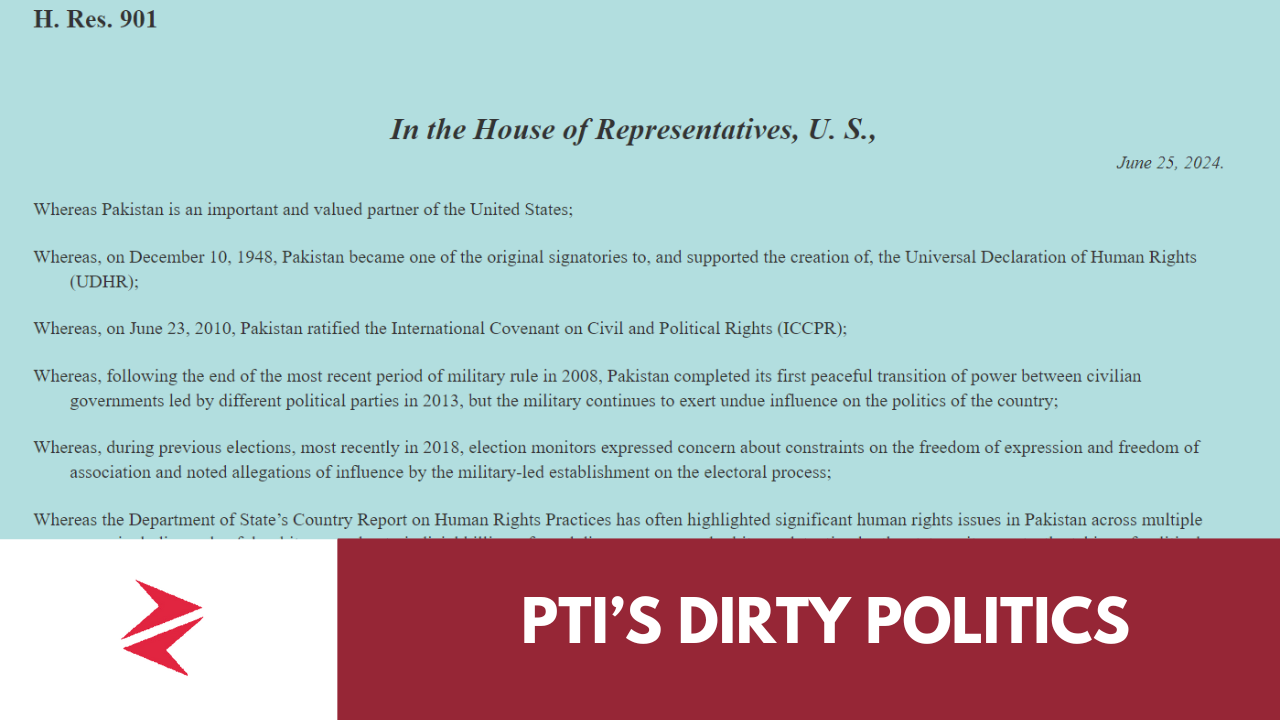The Resolution is very carefully worded, but social media pages and YouTubers in Pakistan are distorting what it says.
It simply states that observers have made claims of electoral interference and restrictions on freedoms. The U.S. upholds democracy and human rights in Pakistan and urges Pakistan to investigate the matter.
There is nothing binding and nothing categorical about election fraud or military interference.
This changes nothing, as evidenced by the fact that the next day, a U.S. State Department official said the U.S.-Pakistan relationship is the best it’s been in years.
I don’t think many people sharing the news about the Resolution have actually read it. The Resolution also mentions the 2018 elections, which the BBC called the “dirtiest elections in years,” The Australian labeled Imran Khan as the Army’s Puppet, and Human Rights Watch termed controversial.
There was an equal media storm after the 2018 elections. PTI has managed to turn that media storm into a U.S. Congress Resolution through lobbying.
Last year, Imran Khan’s Zoom meeting with U.S. Congresswoman Maxine Waters also leaked, where he was pleading with her for a statement.
Over the past year, the Pakistani American Public Affairs Committee (PAKPAC) has raised $141,660. They spent that money on various candidates to lobby them, along with the firm hired by PTI in D.C. to assist with their lobbying efforts.
PAKPAC raised $5,000 for Friends of McCormick and contributed $5,000 to Richard McCormick’s campaign. He is the one who sponsored Resolution 901 in the U.S. Congress.
